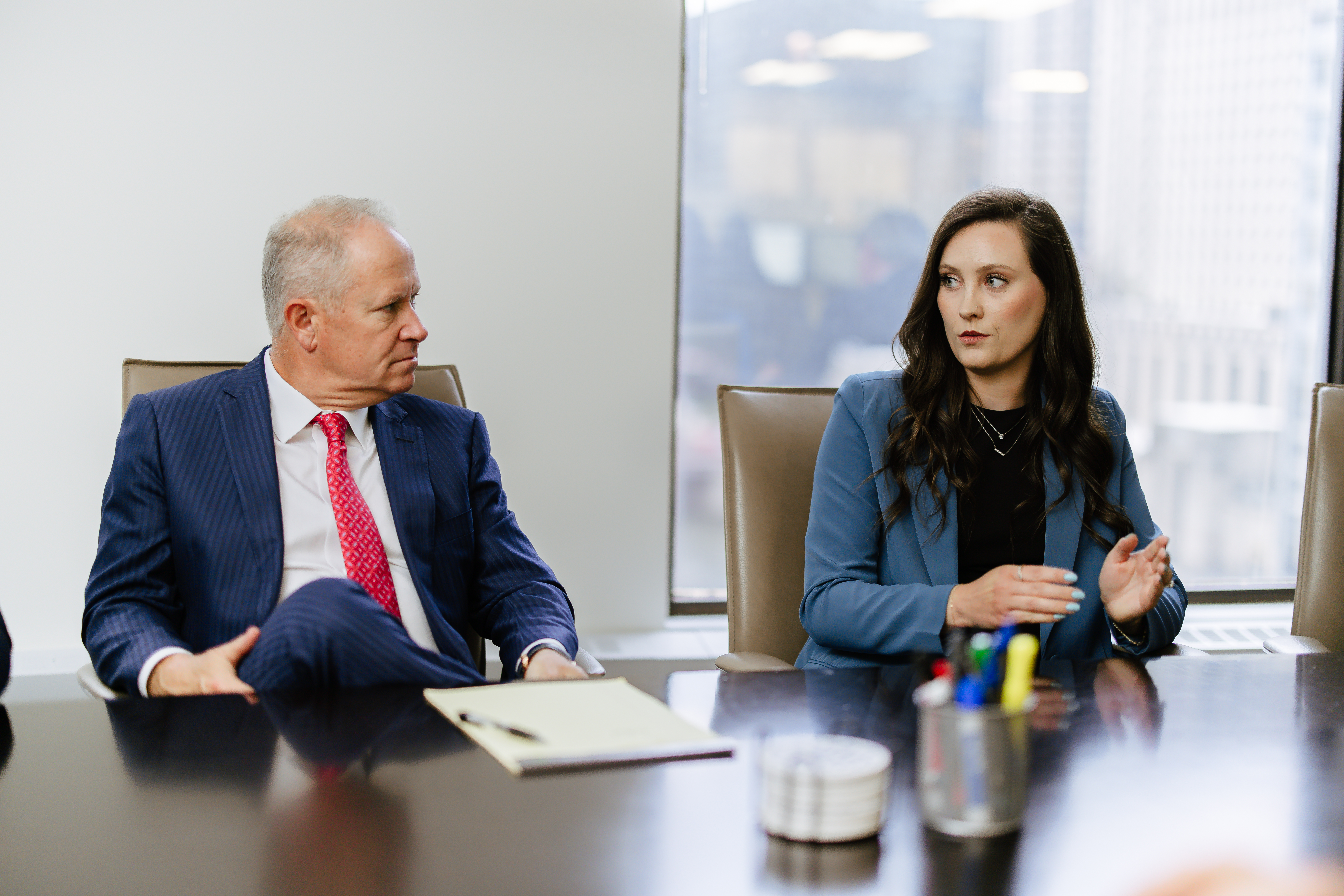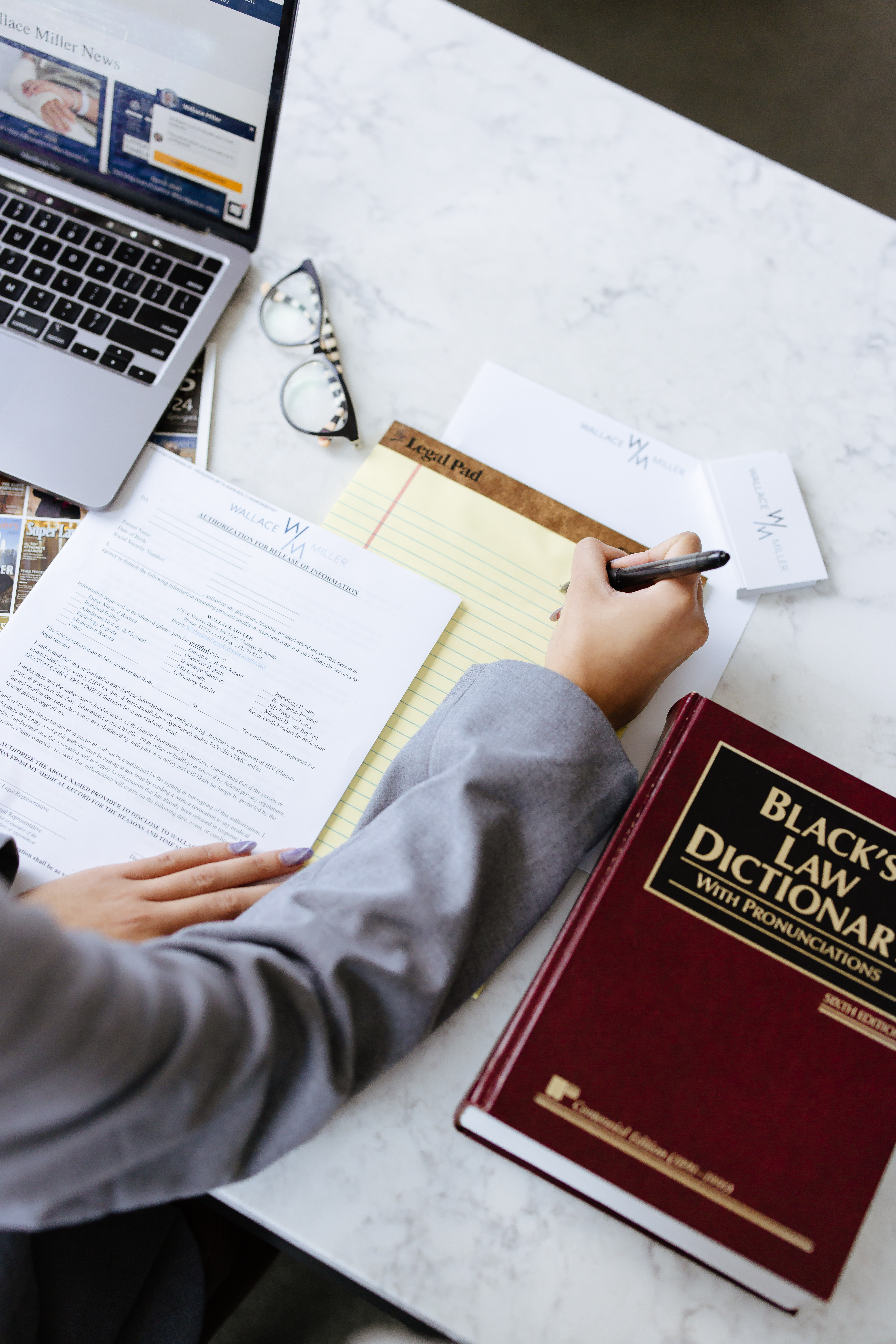Posted on Wednesday, August 13th, 2025 at 9:14 pm
The mass tort litigation process is complex, but like any lawsuit, it relies on the presentation of compelling information to support your case. Expert witnesses play a key role in building a strong case for plaintiffs and ensuring that the harm done by the defendant is recognized.
Wallace Miller attorney Jessica Wieczorkiewicz recently presented on the role of expert witnesses at Mass Torts Made Perfect, a bi-annual conference that helps plaintiffs’ attorneys expand their base of knowledge, connect with other lawyers, and excel as advocates for the people they represent. Co-presenting with Carol Moore from Levin Papantonio and Susan Staggs from Green Law, Jessica shared her insight on what makes a good expert witness and tips for plaintiffs’ lawyers on finding, vetting, and hiring the best witnesses for the case.
Inside and outside the office, every attorney at our firm works tirelessly to do their best by our clients. Events like these give us an opportunity to grow and share our knowledge with the rest of the legal community. “In the mass tort practice area, you can make a difference in the world on a large scale,” says Jessica. “The ability to make a positive impact on the entire country is amazing.”
We worked with Jessica to adapt her presentation into this explainer on expert witnesses: what they are, how they function in a lawsuit, and why they’re so important to mass tort cases.

Partner Edward A. Wallace and Jessica Wieczorkiewicz.
What is an expert witness?
In a civil case, an expert witness is someone who can weigh in on a specific aspect of the lawsuit due to their specialized knowledge. An expert’s qualifications are judged by their specific knowledge, skill, experience, training, and/or education.
The expert witness’ role is to educate the court (and the jury, if applicable) on complex issues in the case. Depending on the details of the lawsuit, they may be a doctor, engineer, statistician, scientist, or another type of expert.
The basics of mass tort cases
Like class action lawsuits, mass torts are a way for individual plaintiffs to work together to hold the same defendant or group of defendants responsible for harm they’ve caused to a large number of people. While each mass tort lawsuit is filed individually, they are often consolidated into a multidistrict litigation in order to make the judicial process more efficient and effective for everyone involved. These cases are consolidated for purposes of discovery, but each plaintiff still maintains their individual personal injury lawsuit.
Examples of mass tort cases include:
- The paraquat litigation. Thousands of plaintiffs have brought claims against the manufacturers of an herbicide called paraquat, alleging that exposure to this product caused their Parkinson’s disease. More than 5,500 cases have been consolidated in the federal litigation in the Southern District of Illinois, in addition to numerous state court litigations.
- The necrotizing enterocolitis (NEC) litigation. After studies found that several baby formula brands may be linked to higher rates of NEC in newborns, parents filed claims that were consolidated in a multidistrict litigation.
- The hair relaxer litigation. Thousands of cases have been brought against the manufacturers of hair relaxer products commonly used by African American women alleging that the products cause uterine and ovarian cancer. These cases have been consolidated in the Northern District of Illinois.
Why is an expert witness important in mass tort litigation?
In mass tort cases, expert witnesses are crucial for establishing causation between the product, device, drug, or action in question and the harm suffered by plaintiffs. Their testimony applies across the span of the case and to the plaintiffs as a whole—in other words, they’re often speaking on behalf of issues that impact the entire group.
While other witnesses may be called in a mass tort case, expert witnesses are unique in that they can offer their opinions on key disputes in the case. Their specialized knowledge enables them to assess the facts of the lawsuit and share their point of view on key issues.

How is an expert witness selected?
An expert witness is selected due to their particular expertise in some part of the lawsuit. For example, a gynecologist may be asked to serve as an expert witness in a case that involves uterine cancer.
But it’s not always that simple—defendants often look for ways to disqualify the plaintiffs’ expert witnesses from appearing in court, especially if the information they present could swing the case in favor of the plaintiffs. As a result, expert witnesses go through an extensive evaluation at every step of the process.
Experts are vetted by plaintiffs’ lawyers through many different methods. Lawyers research their credentials, run background checks, speak with others who have worked with them, read their presentations and papers, investigate past cases where they have testified, and more.
The litigation team will then interview the potential witness. In addition to discussing the details of any prior cases they have worked on, they’ll go over potential conflicts of interest. They will also discuss their availability and associated costs to make sure the expert witness is qualified and able to take on this important role in the case.
After the law firm decides to hire an expert witness, the plaintiffs’ attorneys work closely with the expert to get them up to speed on the case facts and ensure their opinions pass the legal and scientific standards at play. Even then, the court can still exclude expert witnesses if it determines that they are not reliable or qualified to weigh in on the case.
What does expert witness testimony contribute to a mass tort lawsuit?
Expert witnesses can provide valuable input to many different areas of a case. These include:
- Liability and negligence — Did the defendant act in a way that endangered individuals or fail to make a safe product?
- Exposure — Were the plaintiffs exposed to the product or action?
- Causation — Did the defendant’s unsafe product or action cause the plaintiffs’ injury?
- Failure to warn — Did the defendants have a duty to warn individuals about possible harm?
- Damages — What harm did the plaintiffs suffer?
- Life care plan and future damages — What damages and costs are likely going forward?
In both depositions (sworn testimonies) and trials, witnesses will present and explain their expert opinions. They will undergo cross-examination by the defendants, during which the opposing counsel will try to refute their testimony by attacking their credibility and expertise.
Establishing reliable expert witness testimony
How can an expert’s reliability be verified? Courts assess reliability and admissibility using the Daubert standard and Federal Rules of Civil Procedure 702. Together, these frameworks help courts assess experts’ qualifications as well as the relevance and basis of their opinion, the reliability of their methodology, and the application of their methodology to the facts of the case.
Federal Rule 702
According to Rule 702, a witness may be qualified as an expert by knowledge, skill, experience, training, or education. An expert witness may testify if:
- Their scientific, technical, or other specialized knowledge will help people understand information or determine a fact of the case;
- Their testimony is based on sufficient facts and data;
- Their testimony is the product of reliable principles and methods; and
- Their opinion reflects a reasonable application of these principles and methods to the facts of the case.
In other words, an expert can provide testimony if they have specific knowledge that is based on real information, gained through legitimate methods, and applied appropriately to the case.
The Daubert standard
The Daubert standard originates from a 1993 U.S. Supreme Court decision interpreting Rule 702. It is intended as a checklist for trial courts to assess the reliability of scientific expert testimony.
This framework emphasizes how an expert arrives at their conclusions, not just what their conclusions are. It outlines five key factors that judges should consider when deciding whether or not to admit an expert’s testimony:
- Can the expert’s technique or theory be tested and assessed for reliability?
- Has the technique or theory gone through peer review and publication?
- What is the rate of error of the technique or theory?
- Does the technique or theory have standards and controls?
- Is the technique or theory generally accepted in the scientific community?
Expert testimony is often critical in proving key aspects of a case, including the defendant’s liability for causing harm. Rule 702 and the Daubert standard help make sure that this testimony is trustworthy and can be relied upon to make important decisions.

What does this mean for my mass tort litigation?
Our mass tort team takes care of every aspect of the legal process, from gathering medical records to conducting depositions to settlement negotiations. In the long and complicated trial process, working with reliable expert witnesses to strengthen plaintiffs’ cases is one of our most important roles.
Every aspect of our practice represents our dedication to our clients’ cases as we fight for the best possible outcome.
Learn more about our mass tort team
Questions about mass tort claims or looking for more information on your case? Resources on the difference between mass torts and class actions as well as individual case pages are available on our website.
If you can’t find the answers to your questions online, our team is available to talk about your potential case or current litigation. Contact our office at 312-261-6193 to speak to a member of our team, or fill out an online case evaluation if you think you may be eligible to join a lawsuit.
